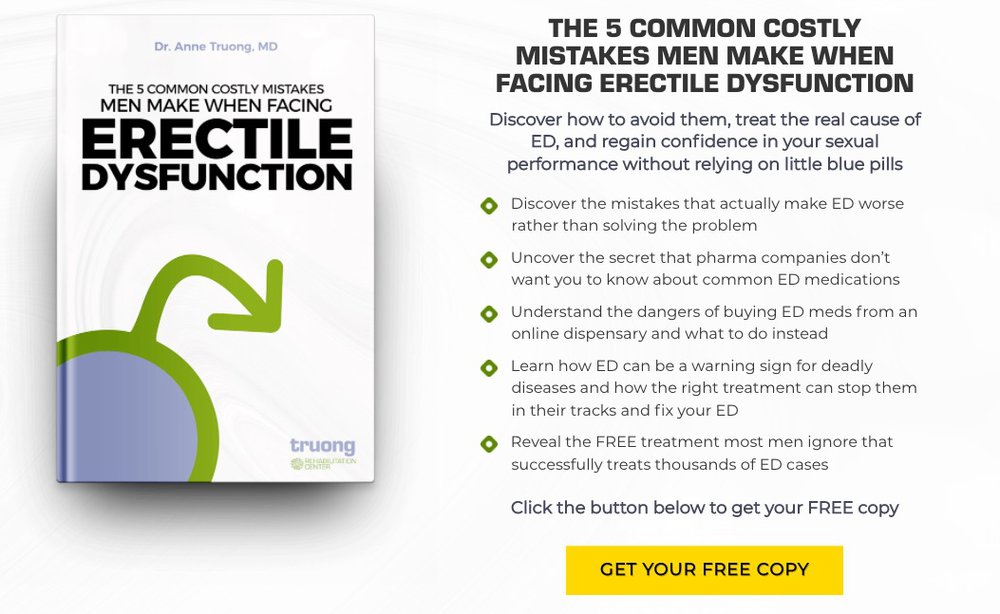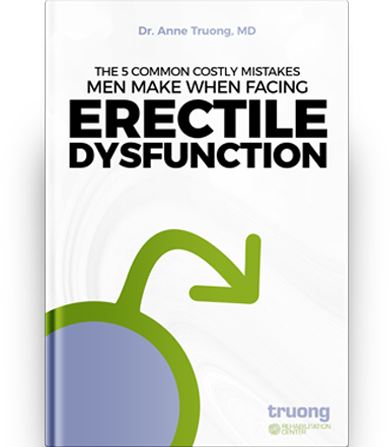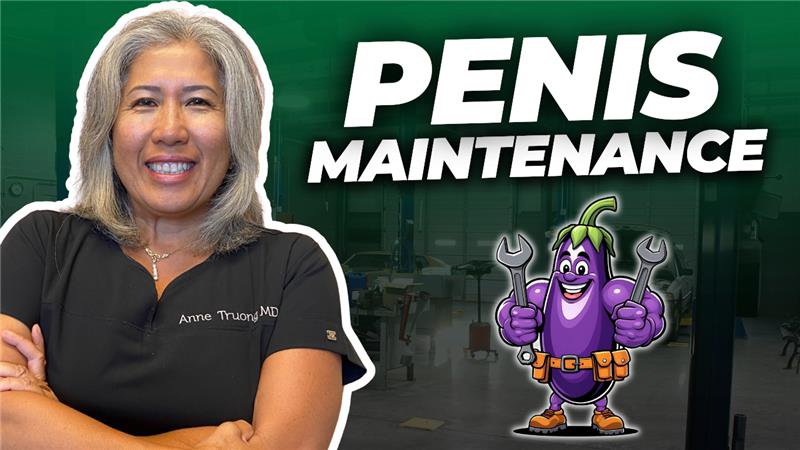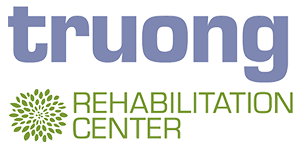Are you looking for a natural treatment for ED?
There are a number of different treatments available, but many of them come with unwanted side effects. In this video, I’m joined by Dr. Tracy Gapin, urologist and board-certified urologist, world-renowned men’s health & performance expert. I'll share with you a natural treatment that has helped many men overcome their ED.
In this episode we will discuss:
- If you're experiencing erectile dysfunction, there are a few natural treatments you can try before resorting to medication
- What is epigenetics and how you can change your genetic expression to alter your gene
- PRP therapy, which uses your own blood plasma to help improve the function of your penis
- Shockwave therapy, which uses sound waves to stimulate new blood vessel growth
- Peptide therapy and exosomes
- How insulin resistance affect your ED
- How sleep can affect your ED
Natural Treatment For ED Episode Contents
- Episode Video
- What is Epigenetics?
- Using Epigenetics As A Natural Treatment For ED
- Natural Treatment For ED – Regenerative Methods/Therapies
- Quick Steps To Reach Peak Performance
- Using Technology To Keep Track Of Yourself
- About our Guest Tracy Gapin
- Episode Links and Resources
Natural Treatment For ED Episode Video
What is Epigenetics?

Anne: Yeah, I am, I'm glad. Yeah. Well, Dr. Gapin does everything for personal life, executive health for men's health, as well as women's health. And I was so impressed on his website, that we had a hard time concentrating what we want to talk about today. But, we want to touch upon something that is new and sometimes, hard to explain. Can you talk a little bit about epigenetic and what that means?
Tracy: Yeah, sure. So, the term epigenetics, it literally means above the genes. Now, what it really means, is we recognize now, that our DNA code is not our destiny, so to speak. It's not going to always translate to identical expression. It's affected by our environment, our lifestyle, our actions, our behaviors, and it means there are methylation processes. There are adjustments, or alterations to the chemical code of our DNA, that will alter its expression. So, let me give an example. We know that certain foods can turn on, or turn off certain genes. We know that certain behaviors, like exercise for example, can turn on, or turn off different genes. And so, by affecting the way these genes are folded and affecting methylation patterns on these genes, it can affect whether genes get turned on or off. And so, think of it, like a dimmer switch, if you will, to our genetic code.
Tracy: And so, what this means, is that we have a very clear understanding that our behaviors, our actions, our lifestyle actually matters, when it comes to how our bodies perform. And that comes to whether we're looking to lose weight, whether we're looking to regain energy, whether we're looking at better sexual function, we have a very clear understanding that it's not just our genetics that define how our bodies work. Epigenetics means that we can actually affect that.
Anne: I see. So, it's like, "Well, here's your genetic code. You don't have to live with it, depending on what you do with your lifestyle, your diet, your exercise, you can affect it. Whether to be turned on, or turn off."
Tracy: Yeah, that's right, exactly.
The APOE Gene
Tracy: I think, a great example would be the APOE gene. And this is a gene that we talk about commonly, as a great way to demonstrate how this works. So, the APOE gene is a lipoprotein that regulates how our bodies process, metabolize saturated fats. For people who have certain variants of the APOE gene, they're at a markedly increased risk of developing Alzheimer's disease, dementia, cardiovascular disease at a very young age, based on their DNA genetic code, all right? However, we found that for those people who have that genetic variant who are at risk, if they alter their diet, such that they have a very low intake of saturated fats, red meat, dairy, for example, or they limit sugar intake, those individuals no longer have that increased risk of Alzheimer's disease, dementia, cardiovascular disease. We are altering that genetic expression simply by our behavior, i.e what we're eating.
Tracy: So, that's a great example of how our behaviors, based in our genetics and understanding our genetics, we can pivot and adjust our behaviors to match those genes to affect genetic expression. And that truly is, however genetics works.
Using Epigenetics As A Natural Treatment For ED
Anne: Well, that is interesting, because you don't have to be a victim of your genetic code. And you certainly have a say, what can be expressed and by how you control your lifestyle. So, having said that, so can you use epigenetic code and lifestyle to tweak? How do you do that, to tweak performance and for sexual health?
Tracy: Yeah, sure. So, when we look at sexual performance, it comes down to ultimately, our systemic health, okay? Oftentimes, sexual function is thought of as an island function by itself, but in fact, you need healthy vascular flow. You need blood flow. An erection after all, is nothing more than just increased blood flow for the penis. And so, we think about, well, how did that happen? Well, you need a hormone called nitric oxide. Nitric oxide is a hormone in our body that will cause the blood vessels to vasodilate, or relax, allow increased blood flow. We need nitric oxide, when we're exercising to increase blood flow to our heart. We need to increase blood flow to our muscles that we're we're training. And so, nitric oxide a key hormone that will cause this vasodilation. Well, when we have problems like insulin resistance, which is related to how our body's process and handle glucose, that doesn't work. It doesn't work.
You can no longer produce the nitric oxide levels that you need to produce that vasodilation that's required. And so, that's the connection, how our lifestyle, our behavior, specifically, in this example, simply glucose regulation, blood sugar regulation, affects nitric oxide production, which is what's needed for an erection. And so, this is why it's so important that we understand that a systems approach to health, a systems approach to sexual health specifically even, is so critical, because stress and sleep and our toxins and our nutrition, they all matter and directly affect that function.
Anne: Well, I love the way how you correlate the diet and insulin resistance, which means that insulin is not as sensitive and moving the blood sugar into your cells anymore, but more blood sugar stays in the bloodstream, affect nitric oxide, and then nitric oxide will affect the blood flow. And therefore, you're not getting an erection as you used to be, because Viagra works by increasing nitrous oxide as well. So, does that mean that if you have insulin resistant, you take Viagra, the Viagra doesn't work as well, or not really?
Tracy: Exactly right. Yeah, you're relying on the endothelium itself, the lining of that blood vessel, is what is actually secreting the nitric oxide. And when that's disrupted, that would be one of the reasons why those oral medications may not be as effective as otherwise.
Natural Treatment For ED – Regenerative Methods/Therapies
Anne: Oh, very, very good point. So, for our listeners, what you eat will affect your blood flow and therefore, your erectile function. So, having said that we're talking about blood flow, let's talk about some regenerative, my favorite area, talk about regenerative treatment for erectile dysfunction. And to clarify, regenerative treatment is innovative treatment that help your body heal yourself in treating the cause of the problem. So, can you discuss about some of the methods that you use?
Tracy: Yeah, absolutely. And I want to just emphasize what you just pointed out, that there is a very clear distinction between short-term bandaid solutions for ED and long-term, restorative, regenerative options. So, when we look at the bandaids, those are things like a vacuum erection device, or Viagra, Cialis, oral medications, injection therapy, those are all short-term solutions for just simply, a guy wants to have an erection tonight. "What do I do to turn it on right here, right now? I don't care about fixing it long-term." And those may, or may not work for you, but that's a short-term solution. When we're looking at long term, how do we fix the underlying root cause, or the culprit here that's causing the sexual dysfunction, so that I can function normally long term, that's the regenerative solutions that we're talking about here.
Low Intensity Shockwave Therapy
Tracy: And so, some examples of those would be number one, low intensity shock wave therapy. Now, low intensity shock wave therapy is the technology that we use to treat kidney stones. It's the same technology where we can deliver sound waves through the skin, through the body, deep below the skin, below the surface, to focus on a target. Now, you can do that for kidney stones. But, what they found also, is when you do that to vascular tissue, what does it do? They found that it actually promotes stem cell activation, which will effectively produce new blood flow. Lay the foundation, lay the pipes, so to speak for new blood vessels, to form a process called neovascularization. And that neovascularization will increase blood flow of the penis. And that has been shown clinically, to improve sexual function.
GAINSWave Treatment
Tracy: And so, GAINSWave is a treatment out there that adopts that approach, that technology of low intensity shock wave therapy to stimulate repair of blood flow to the penis. There are two other regenerative options that we have as well. The next one would be PRP, which is platelet-rich plasma. And a lot of people are familiar with PRP, because it's very popular in the orthopedic arena as well. It has a lot of regenerative properties. What we do with PRP, is we draw a person's blood. We spin that blood down in a centrifuge, so that we can separate, or isolate out the growth factors, the platelets, which are very concentrated in cytokines, chemokines, and growth factors. And then, we can inject that into an area of the body to effectively promote growth healing repair. And so, this is often done in joints. I had elbow surgery three months ago, and that was a treatment that was part of the surgery to put these growth factors at the area of the surgery. It's done in knees, it's done in shoulders.
And it's also done in the penis, in this case, for sexual function, for repair and recovery of sexual function. It's often combined with GAINSWave as an adjunct to that, to improve the quality of the repair, if you will. The third regenerative option that is available, is what's called exosomes. Exosomes can be thought of as simply the secretions from stem cells. What are stem cells? Stem cells are the progenitor cells in our body, from which all of the cells come from. When you're an embryo, you're made of stem cells that are pluripotent cells that can produce any other cell it needs to. Whether it's a skin cell, a liver cell bone cell, whatever you need. These exosomes are secretions from stem cells that can adapt to create whatever tissue is needed at the site of repair. And in this case, it helps, especially when combined with these other modalities to improve neovascularization, or increased blood flow creation to the penis. So, a long answer to the regenerative options for ED.
Anne: Right, and treating the root cause of the problem, which is mainly restorative blood flow to the penis again, by your own blood, which is platelet-rich plasma. And using low intensity shock wave therapy, or GAINSWave, which is delivering sound wave technology to restore blood flow. And then, exosome is tapping into progenitor, or stem cell therapy with these little vesicles that are being produced from the stem cell. Putting superpower healing to restore the function of the penis again as well. So, that's exciting.
Peptides
Anne: What about peptides?
Tracy: Yeah, peptides are truly amazing. So, peptides, for the listeners, are nothing more than signaling molecules. They are chains of amino acids. They're short proteins, if you will. So, what that means, is a chain of amino acids, over 100 amino acids of length, is technically called a protein. That's the definition of protein, is a long sequence of amino acids. A peptide's simply a short protein, anything less than 100 amino acids is considered a peptide. Peptides are amazing at a variety of very individualized, personalized functions.
Tracy: For example, growth hormone is a peptide. Insulin is a peptide. The thymus gland, when we're a baby, a thymus gland is very important for producing immune cells that our body needs to promote normal immune function. As we get older, the thymus gland will shrink, will involute. There are peptides that come from the thymus gland, that are amazing for helping our bodies boost our immune function.
So, that's an example of very specific use for peptides. We have peptides that come from stomach enzymes, that are very effective at reducing inflammation, especially in the gut. We found that same peptide when given SubQ, or intraarticular in a joint, can massively reduce inflammation. This peptide is called BPC. BPC can also actually be used, and some studies have shown that it may actually be helpful for erectile dysfunction. By again, reducing inflammation, systemic inflammation, these physiologic processes that are happening throughout our body. Inflammation, insulin resistance, oxidative stress, all these processes don't just affect our body, don't just affect our belly and our brain, they're affecting our sexual function as well. And so, these peptides can be used for very precise indications for patients who need them to aid in reducing inflammation, to reduce visceral fat, to boost repair and recovery. To help sleep, to help reduce anxiety, improve cognitive function, memory and focus, sexual function, libido.
There's a peptide for almost anything you could imagine, they've isolated a peptide. And so, it's a great arena of precision medicine. I'll caution everyone, that peptides are not magical, and you got to have the foundational aspect first, you got to have your hormones properly balanced, you have to have your nutrient levels optimized. You need to take care of all the foundational nutrition, stress, sleep, fitness, all those really important aspects of your health as well. But, peptides can give you that added edge as well.
Anne: That's wonderful, yes. When peptides first came out, I thought it was a great tool for a physician to use in adjunct to all the tools that we use as well. And I like how you mentioned that, "Hey, let's really look at the basics and start at treating the root cause from the inside out, instead of just a short-term solution with medication, or something, and just treating the symptom-"
Tracy: Yeah.
Quick Steps To Reach Peak Performance
Anne: So, for a man to be in peak, not only sexual health, but even in peak health, what would you recommend as some key, basic thing that he can do now? If you're a man in his mid-40s, he's in good health and he exercises, but he wants to maintain feeling that way to his 50s and 60s
Some quick steps that he can do? Two, or three steps he can do now to maintain his peak performance?
Tracy: So, my center is not called Gapin Institute for High Performance Medicine for nothing. So, I love the question you just asked. So, I really believe that the success that you achieve in any area of your life, is really completely dependent upon your health. And so, when we talk about high performance, what does it really mean? It means, optimizing your body and your brain, so that you can really operate at its highest level. And so, when we look at things that we can do, it's understanding that our body's this complex system, and we need to treat it that way. And we need to understand how everything interrelates.
Get Enough Sleep

We've already talked about nutrition. We've already talked about how inflammation, all these other physiologic processes can affect things. And so, I look at things like sleep, first of all. I work with so many high performers who have crummy sleep and what that's doing, to give you a sneak peek behind the scenes, in your body, when you have crummy sleep, whether it's intentional, you're staying up too late to grind those few extra hours and you're not getting enough good quality sleep, or it's unintentional, because other processes affecting your sleep, that either you can't fall asleep, or waking up throughout the night.
But, if you have disruptive sleep, what that's doing, is that's raising cortisol levels. That's crushing DHEA levels. That crushes testosterone levels, that crushes thyroid. That causes you to store fat. That promotes inflammation. That affects your mood. And it has a trickle down effect. So, you see all I've touched on so far, is just sleep. And we see the dramatic cascade of events that results from nothing more than just crummy sleep. And so, focusing on good quality of sleep is paramount. A lot of sleep hygiene. I could spend an hour on that, but in general, limiting blue light devices, at least two to four hours before bedtime. Limiting foods that are high in potential amino acids and specifically glutamate, that can affect neurotransmitter production at night is important.
Getting Good Sunlight Exposure
Getting good sunlight exposure first thing in the morning has been shown to be very effective for our sleep centers at night, believe it or not. Focusing on temperature of your room, focusing on EMF near your bed, focusing on any light that's in your room. What mindfulness, relaxation techniques are you adhering to in the evening? I like to say within two hours of bedtime, there should be no phone, no iPad, no laptop, no TV. You have a couple things you can do in those two hours before bed. You can read, you can meditate, or you can have sex. And pick which one you want, but those are great ways to get you in a state for relaxation, for sleep.
Using Technology To Keep Track Of Yourself
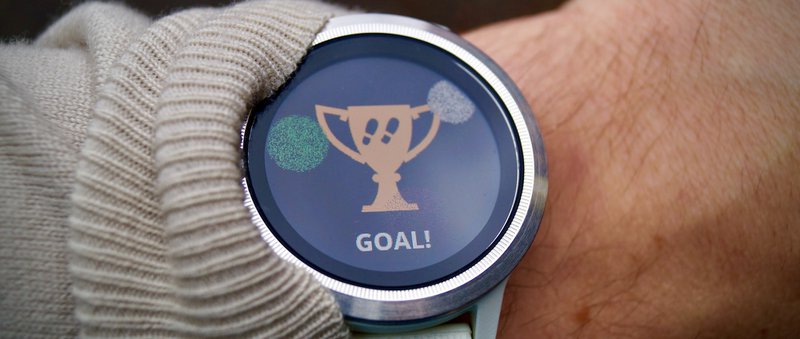
Anne: The tips on, almost resetting the circadian rhythm again, and getting your mind to slow down right before you go to bed, and trying to restore the cortisol level.
Anne: So. It's amazing how sleep really creates a cascade of hormones affecting the thyroid, the sexual hormones, and then your cortisol level. And then, contributing to weight gain on top of that as well. So, the number one thing to do, is make sure you get good quality sleep. So, how do you find good quality sleep? Is it just a quantity of time that the person is sleeping? Or, the amount of time he has to be in REM?
Tracy: So, I am a huge believer in metrics and tracking data. And to do that, we need to have technology. We need to take advantage of technology and leverage it to gather that data. And so, I'm a believer in wearable technology. I have a device that I always wear. I have three devices that I'll rotate between, but there's one that I always wear, but it-
Anne: What is that? What are the three things you always wear?
Tracy: Oh, so I happen to have a Garmin right now, which I love, and that's probably the one I wear the most. I have an Oura Ring that I wear as well. And then, the third one, I play with Whoop, I play with BioStrap, I play with Fitbit, I play with the Halo. And I try to be agnostic when it comes to devices and I'm not here to sell any particular brand. Each of them have their pros and cons. And I'll have patients who will not want to wear a certain device.
Tracy: One of my clients, he's a race car driver, and he just will not wear a ring, for example. And he hates watches. Well, that creates a challenge. So, we got to figure out, what will he wear? And so, it's whatever device you're going to wear consistently, reliably is the best device for you.
Anne: Oh, I like that. Yeah.
Tracy: Yeah.
Anne: I only wear an Apple Watch and that's the only thing I can wear. Because, I tried the Oura Ring and it's just too uncomfortable for me to wear, and I have small fingers. But, I love wearable. And so, having said that, I think that Dr. Gapin has give some really great tips and advice, that the listeners can start right away to continue your peak performance. Whether it's sexual health, or just general health and maintaining your longevity and just wellness, start with simple things, such as sleep and wear your favorite wearable technology to monitor that.
Anne: And I always stress, at least seven hours. And if you're dreaming, that's good, because you're in REM sleep. So, you're resting there as well, too.
About Our Guest, Tracy Gapin
From his website: https://drtracygapin.com/
Dr. Gapin is board certified by the American Board of Urology and is a Fellow of the American College of Surgeons.
After his undergraduate education at Texas A&M University (Gig ‘Em!) and medical school training at the University of Texas Southwestern Medical School, he completed a general surgery internship and urology residency at the University of Florida.
Dr. Gapin combines his compassion and extensive experience with men’s health care and cutting-edge technology to offer patients individualized, state-of-the-art care. He has been a true pioneer for innovation throughout his medical career.
Download My New e-Book For Additional Resources
Reveal the FREE treatment most men ignore that solves thousands of erectile dysfunction cases every year, plus the 5 biggest mistakes you must avoid if you want to say goodbye to your ED. Uncover it all in my free ebook available to download now.
